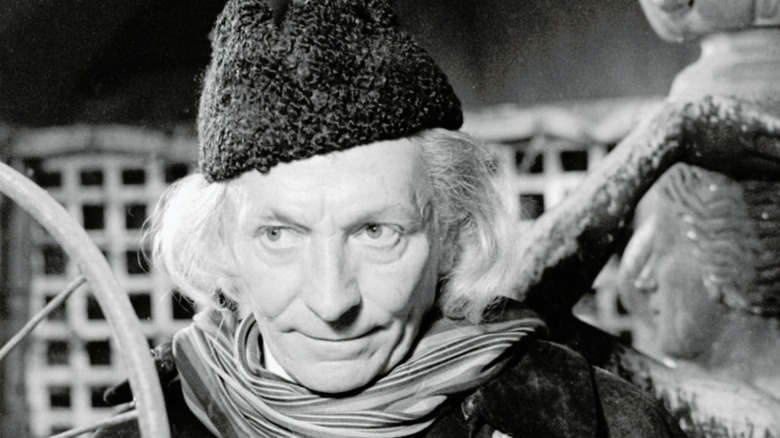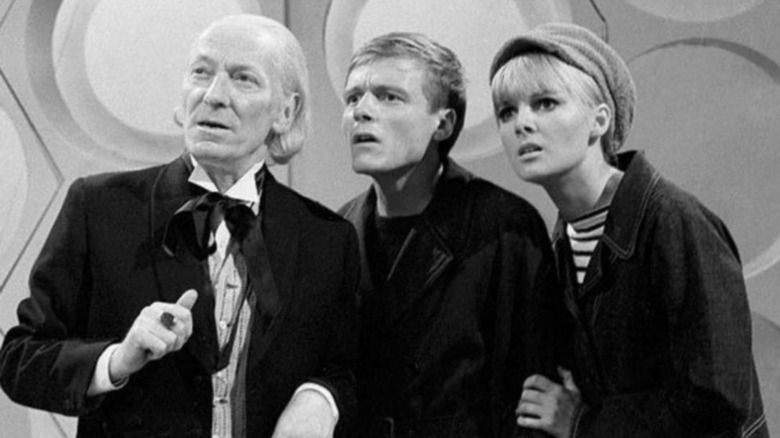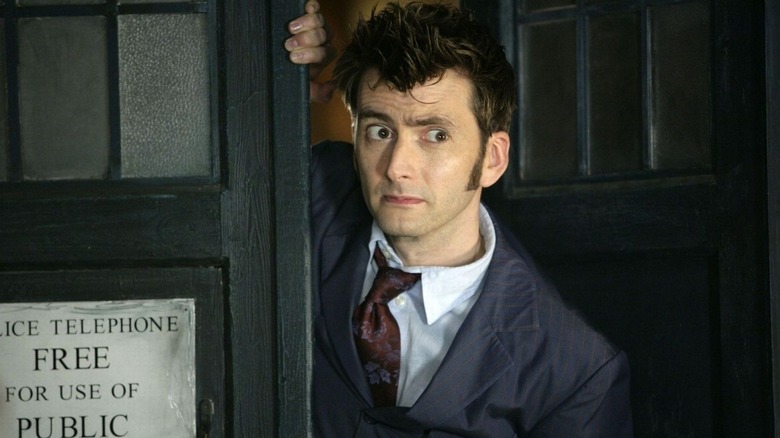
Did you know that a rather large chunk of "Doctor Who" episodes from the show's early years is missing? And no, I'm not talking about the glorious 2005 revival featuring Ninth Doctor Christopher Eccleston.
The BBC unintentionally — or maybe intentionally — lost the first six years of the science fiction series, which means all of the network's original master tapes for the 1960s episodes of "Doctor Who" no longer exist. If it weren't for stills restored by them and a few episodes that were recovered decades later, newer generations would have no memory of how the show began. It would be as if 106 episodes of "Doctor Who" never existed and were a figment of our imagination. I haven't watched many of the old episodes, but like any self-respecting Whovian, I've mourned their loss over the years.
So how does one manage to accidentally lose 106 episodes of a supremely popular show, you ask? Between 1967 and 1978, the BBC routinely deleted archive programs for various reasons, including lack of space, limited materials, and a major lack of rebroadcasting rights. Retaining content worth thousands of hours remained expensive and required resources, so, as time progressed, broadcasters decided to move forward instead of holding on to what they already had.
Broadcasting Rights, Economic Ease, And Other Reasons

Another reason has something to do with broadcasting rights. In the 1950s, the performers union protested against the taping of shows since the ones that were aired were live performances of plays later broadcasted to television. Rebroadcasting them required performers to be hired once again and for the entire play to be re-filmed. So naturally, the people involved pushed against taping to continue keeping their jobs.
When taping shows was finally made possible, the union created agreements for how many times a single taped performance could be broadcasted. A bigger reason behind the wiping out of archive programs was that broadcasters didn't see any value in keeping black and white shows, deeming them obsolete in an era that had advanced to the use of color. Tapes were also expensive back then, so it made sense economically for broadcasters to reuse existing tapes by wiping them clean and using them to store newer shows. It turns out the BBC was deleting their history without knowing what it would cost them years later.
People at the time didn't consume content like we do today — there was no Netflix or Hulu, and until Sony released Betamax in the mid-1970s, there was no way of recording a television show. Oh, the horror. To imagine that countless episodes of "Doctor Who" have been lost to time because there wasn't a demand for rebroadcasting already-aired shows is a lot to think about!
The BBC Deleted Their Own History

To add to that, the BBC has a Film Library where everything shot on film was archived. They didn't store videotapes in that Library, and "Doctor Who" episodes were filmed using a mix of film and video. While assembling the final episodes, they were transferred to 16 mm films by BBC Enterprises to sell copies to other countries. If the episode were on film only, it would have been stored in the Film Library, which curates and holds all BBC titles that originate on film. Because the "Doctor Who" episodes were already taped and transferred, the videotapes were considered production material and not the final product. Thus, they remained in the BBC engineering department, which didn't have the same preservation charter as the Film Library.
That's when the reusing of tapes happened, and the Library ended up having only 47 out of the first 253 episodes on master videotapes. It seems like the BBC personally vandalized their history instead of preserving it, but here's a silver lining: nine episodes have been recovered since!
The original number of the missing episodes was 106 — and now it is 97. In 2013, the BBC announced that nine missing episodes were recovered in the storeroom of a television relay station in Nigeria, where they were just propped up on a table, gathering dust. The quest to discover more of the lost episodes has since continued. If only we had a TARDIS and could go back in time to retrieve the episodes ... wouldn't life be so much simpler?
Read this next: 14 Shows Like Rick And Morty That Are Worth Your Time
The post How the BBC Lost Over 100 Episodes of Doctor Who appeared first on /Film.
0 Comments